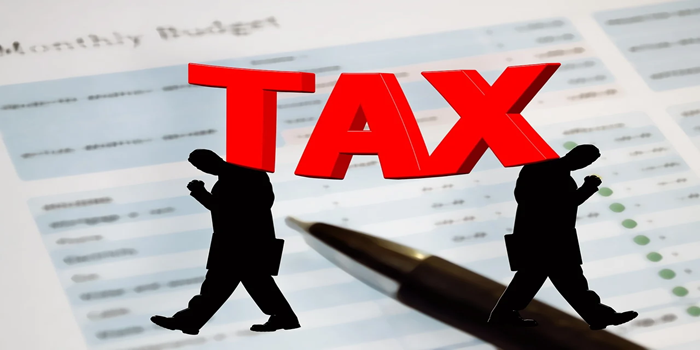
When it comes to planning for the future, one area Canadians often overlook is the impact of taxes at the time of death. While the term “estate tax” is commonly used in the United States, estate tax in Canada operates quite differently. In fact, there is no direct estate or inheritance tax in Canada. However, that doesn’t mean passing on wealth to the next generation comes without tax consequences.
At SRJ Chartered Professional Accountants, we understand the importance of protecting your legacy. This article breaks down what estate tax in Canada actually entails, who is responsible for paying it, and how you can minimize its impact with thoughtful estate planning.
Is There Estate Tax in Canada?
Contrary to common belief, Canada does not levy a formal estate or inheritance tax. Beneficiaries do not pay tax on the amount they inherit. However, the estate itself may be subject to various taxes before the assets are passed down. These taxes can significantly reduce the overall value of an estate, making it feel as though there is an “estate tax” after all.
Instead of a tax on the inheritance itself, the Canada Revenue Agency (CRA) imposes taxes based on the deemed disposition rule. This means that the deceased is considered to have disposed of all their capital property at fair market value immediately before death. Any capital gains are included in the final income tax return, often referred to as the “terminal return.”
Key Tax Implications at Death
- Capital Gains Tax
Assets such as real estate, stocks, and investment properties may have appreciated significantly in value over the years. When these assets are “deemed sold” at death, the capital gains are taxed on the deceased’s final return. This can create a large tax liability even if the asset hasn’t been sold. - RRSPs and RRIFs
The entire value of Registered Retirement Savings Plans (RRSPs) and Registered Retirement Income Funds (RRIFs) must be reported as income on the final tax return unless transferred to a qualified beneficiary such as a spouse, common-law partner, or financially dependent child. This could push the estate into a higher tax bracket and lead to significant taxes owed. - Probate Fees (Estate Administration Tax)
While not technically a tax, probate fees are charged by the province to validate the will and authorize the executor. In Ontario, for example, the estate administration tax is 1.5% on estate values above $50,000. This fee can be substantial, especially for high-value estates.
Who Pays Estate Tax in Canada?
Although beneficiaries do not directly pay taxes on inherited assets, the estate must settle all outstanding taxes before distributions can be made. The executor or legal representative is responsible for:
- Filing the final income tax return (T1) for the deceased.
- Calculating and remitting taxes owed on capital gains, RRSPs, RRIFs, and other income.
- Paying any provincial probate fees.
- Ensuring all taxes are settled before distributing assets to beneficiaries.
If taxes are not paid properly, the executor can be held personally liable. That’s why working with a professional firm like SRJ Chartered Professional Accountants is essential to ensure every step is handled correctly.
How to Avoid Estate Tax in Canada: 6 Proven Strategies

While you can’t avoid all taxes at death, there are several ways to minimize the tax burden on your estate:
1. Spousal Rollover
Assets transferred to a spouse or common-law partner at death are not subject to immediate taxation. This is known as a spousal rollover and allows for tax-deferred transfers of RRSPs, RRIFs, and capital property. The surviving spouse takes over the assets at their adjusted cost base, and taxes are only triggered when they sell or withdraw the funds.
2. Gifting Assets During Lifetime
Canada does not have a gift tax, meaning you can transfer assets while alive without immediate tax to the recipient. However, capital gains will still be triggered if you gift appreciated assets, such as stocks or real estate. This strategy can reduce the size of your estate and lower probate fees.
3. Establishing a Trust
Using tools like family trusts or alter ego trusts can help you manage your assets during your lifetime and control how they’re distributed after death. Trusts may offer income-splitting opportunities, reduce taxes on death, and bypass probate, depending on how they’re structured.
At SRJ Chartered Professional Accountants, we help clients establish tax-efficient trust structures that align with their estate planning goals.
4. Naming Beneficiaries on Registered Accounts
Designating beneficiaries on accounts like RRSPs, RRIFs, TFSAs, and life insurance policies allows those assets to bypass the estate entirely. This not only avoids probate fees but also simplifies the transfer process.
Ensure your beneficiary designations are up to date and legally valid, as mistakes in this area are common and can lead to unwanted tax consequences or family disputes.
5. Multiple Wills (Where Permitted)
In provinces like Ontario, it’s legal to have multiple wills to separate probate and non-probate assets. For example, real estate and private company shares may not need probate, allowing them to be distributed without triggering probate fees. This can lead to substantial tax savings for large estates.
6. Charitable Donations
Leaving a portion of your estate to registered charities not only supports causes you care about but can also provide valuable tax credits to offset taxes owing on your final return. Strategic giving can significantly reduce your estate’s tax bill while leaving a meaningful legacy.
FAQs: Estate Tax in Canada
Can I transfer assets without paying estate tax in Canada?
Yes, especially to a spouse or qualified beneficiary, where tax-deferred rollovers are allowed. Additionally, naming beneficiaries and gifting during life can help avoid taxes or probate.
Is it better to gift or inherit property in Canada?
It depends. Gifting during life can reduce probate fees but may trigger capital gains tax at the time of the gift. Inheriting property defers this to the estate, which may be taxed at a higher marginal rate.
Can I gift a house to my son without paying taxes in Canada?
You can gift the house, but you’ll be deemed to have sold it at fair market value. If the property is not your principal residence, capital gains tax applies.
Are gifts before death taxable in Canada?
There is no gift tax, but capital gains must be reported if the asset has appreciated. Gifting can be part of a larger estate tax reduction strategy.
How does a trust help reduce estate tax in Canada?
Trusts offer income-splitting opportunities, control over asset distribution, and in some cases, probate avoidance. They can be powerful tools for intergenerational wealth planning.
Do beneficiaries pay tax on inheritance in Canada?
Generally, no. Beneficiaries receive their share tax-free, but the estate must pay taxes before distributions are made.
Is a TFSA taxable at death?
The value of the TFSA at the date of death is tax-free. However, income earned after death is taxable unless the account is rolled over to a successor holder, usually a spouse.
Final Thoughts
While Canada doesn’t charge a formal estate tax, the combined effect of capital gains, RRSP/RRIF income inclusion, and probate fees can be substantial. These costs can erode your estate and leave less for your loved ones.
With strategic planning and the right guidance, you can reduce or defer many of these taxes. At SRJ Chartered Professional Accountants, we help individuals and families navigate the complexities of estate planning with expert advice tailored to your situation.
Contact SRJ today to build a plan that preserves your wealth and protects your legacy.